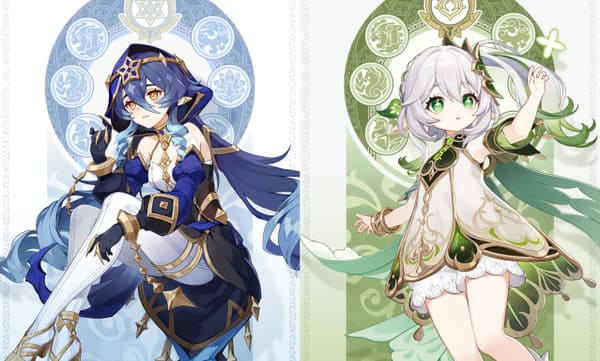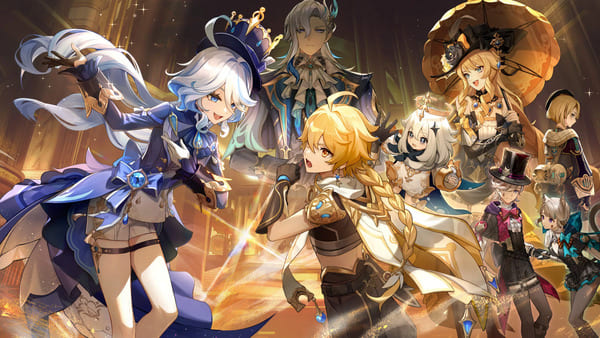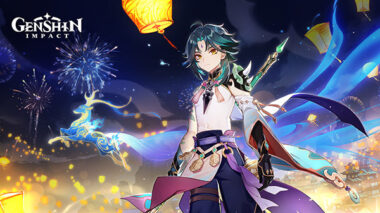In recent years, Genshin Impact has captured the hearts of gamers worldwide, becoming a cultural phenomenon since its release in September 2020. Developed by miHoYo, this action RPG offers a vibrant open world filled with breathtaking visuals, engaging gameplay, and an ever-expanding roster of characters. However, one aspect of the game that has drawn considerable attention—and controversy—is its microtransaction system. This article delves deeply into the impact of microtransactions in Genshin Impact, exploring how they shape player experience, influence game balance, and affect community dynamics.

Understanding Genshin Impact’s Monetization Model
The Gacha System Explained
At the core of Genshin Impact’s monetization is its gacha system, a mechanic borrowed from mobile gaming that allows players to obtain characters and weapons through randomized draws. Players spend in-game currency, which can be earned through gameplay or purchased with real money, to access this feature. The appeal lies in the thrill of acquiring rare items and characters, but the underlying structure raises significant ethical questions about gambling mechanics in video games.
The game’s primary currency for these draws is called “Primogems.” Players can earn Primogems through various activities like completing quests, exploring the world, or participating in events. However, to truly maximize the gacha experience, many players turn to real-money purchases, leading to a scenario where spending becomes an integral part of the gameplay experience.
The Psychological Hook
Genshin Impact expertly employs psychological tactics to keep players engaged. The excitement of potentially receiving a high-tier character or weapon creates a cycle of hope and reward. The developers have introduced limited-time banners featuring exclusive characters, further intensifying this psychological pull. Players may feel compelled to spend more to secure their favorite characters before the opportunity vanishes.
This system, while lucrative for the developers, can lead to a phenomenon known as “gambler’s fallacy,” where players continue to invest time and money in hopes of achieving a desired outcome, despite the odds being stacked against them.
The Financial Implications for Players
Spending Patterns
The microtransaction system in Genshin Impact has led to varied spending patterns among players. While some enjoy the game without spending a dime, a significant portion feels compelled to invest money to enhance their experience. According to industry reports, Genshin Impact generated over $1 billion in its first six months, illustrating the game’s profitability through microtransactions.
Players often fall into tiers based on their spending habits:
- Free-to-Play (F2P): Players who enjoy the game without any financial investment.
- Low Spenders: Players who spend a small amount, typically on monthly “battle passes” or limited-time offers.
- Whales: Players who spend significant amounts of money to obtain characters and items quickly.
The Community Divide

This financial dynamic creates a divide within the Genshin Impact community. F2P players often voice frustration over the perceived advantages that spending players have, particularly in competitive content like Spiral Abyss, where the best characters and weapons can significantly enhance performance. This disparity can lead to a toxic atmosphere, as players criticize one another based on their spending choices.
Moreover, social media platforms are filled with discussions about “whale culture,” where high spenders showcase their collections, inadvertently alienating players who do not wish to—or cannot—spend money. This creates a complicated relationship between players that can detract from the overall enjoyment of the game.
Impact on Gameplay and Balance
Character Accessibility
The microtransaction system directly influences character accessibility. While players can earn characters through gameplay, the best ones often appear on limited-time banners, making it challenging for F2P players to acquire them. The “FOMO” (Fear of Missing Out) mechanism encourages players to spend money to secure desired characters, leaving some feeling frustrated and disheartened.
As a result, character accessibility can skew the balance of gameplay. Players who spend money may dominate competitive events and challenges, leading to a sense of inequity among those who choose to play without spending.
The Power Creep Issue
Another significant concern is the issue of power creep. As new characters and weapons are introduced, older ones may become less viable in higher-level content. This constant influx of new, powerful characters incentivizes players to spend money to remain competitive, creating a cycle where the meta is continually shifting. Players may feel pressured to keep up with the latest releases, leading to burnout and frustration.
Player Retention and Engagement
Long-Term Player Engagement
The gacha system in Genshin Impact is designed to keep players engaged over the long term. Frequent updates, new characters, and events help maintain interest, but they often come with the expectation that players will spend money to experience all that the game has to offer. The limited-time nature of banners creates urgency, which can be both engaging and exhausting.
For many players, the excitement of each new update is offset by the knowledge that to fully enjoy the content, they may need to invest money. This can create a sense of dissatisfaction, especially for those who prefer a more traditional, complete gaming experience without financial constraints.

Community Events and Collaboration
Despite the challenges posed by microtransactions, Genshin Impact excels at creating community events that encourage collaboration. Events often reward players with in-game currency or unique items, allowing them to experience the game without the pressure to spend money. However, the effectiveness of these events is sometimes undermined by the desire for premium characters, leaving some players feeling unfulfilled.
Ethical Considerations
The Gambling Debate
The inclusion of microtransactions and gacha mechanics in games like Genshin Impact has sparked intense debate regarding ethics in gaming. Critics argue that these systems exploit vulnerable players, particularly minors, who may not fully understand the implications of spending real money on virtual items.
In response to these concerns, some countries have begun implementing regulations to address the issue of gambling in video games. The conversation surrounding ethical gaming practices continues to evolve as developers seek to balance profitability with social responsibility.
Developer Accountability
As the industry grows, there is an increasing demand for developer accountability regarding microtransactions. Players are becoming more vocal about their expectations for fair practices, prompting developers to reassess their monetization strategies. miHoYo has made some strides in addressing community concerns, but the balance between profit and player satisfaction remains a delicate one.
Strategies for Navigating Microtransactions
Setting Personal Boundaries
For players concerned about the impact of microtransactions on their gaming experience, establishing personal boundaries can be beneficial. Setting a budget for spending and sticking to it can help mitigate the emotional highs and lows associated with the gacha system.
Players can also limit their playtime around events that involve heavy spending to maintain a healthy relationship with the game. Being aware of triggers that lead to impulsive purchases can help players avoid the pitfalls of excessive spending.
Fostering a Positive Community
Encouraging open dialogue within the community can foster a healthier gaming environment. Players can share experiences and strategies for navigating microtransactions while promoting inclusivity and understanding among different spending tiers. Creating spaces for F2P players and spenders to coexist can help bridge the gap and reduce toxicity.
The Future of Genshin Impact and Microtransactions
Evolving Game Mechanics
As Genshin Impact continues to evolve, the developers will need to consider the impact of microtransactions on gameplay and player experience. Incorporating feedback from the community can lead to more balanced mechanics that allow for greater accessibility without compromising the game’s profitability.
Future updates may introduce alternative monetization methods that prioritize player satisfaction and community engagement. Finding a sustainable model that respects players’ investment—both time and money—will be crucial for the game’s longevity.
The Role of Community Feedback
Community feedback will play a pivotal role in shaping the future of Genshin Impact. As players become more vocal about their desires and concerns, developers will need to adapt their strategies to align with player expectations. Engaging with the community through surveys, forums, and direct communication can help build trust and improve player satisfaction.
Conclusion
The impact of microtransactions in Genshin Impact is a multifaceted issue that affects player experience, game balance, and community dynamics. While the gacha system provides excitement and engagement, it also raises ethical concerns and creates disparities among players. As the game continues to evolve, it will be essential for developers to find a balance that respects both profitability and player enjoyment. By fostering a positive community and listening to player feedback, Genshin Impact can navigate the complexities of microtransactions and maintain its status as a beloved title in the gaming world.


